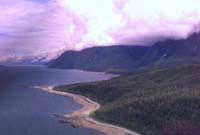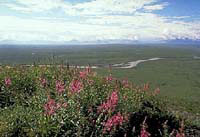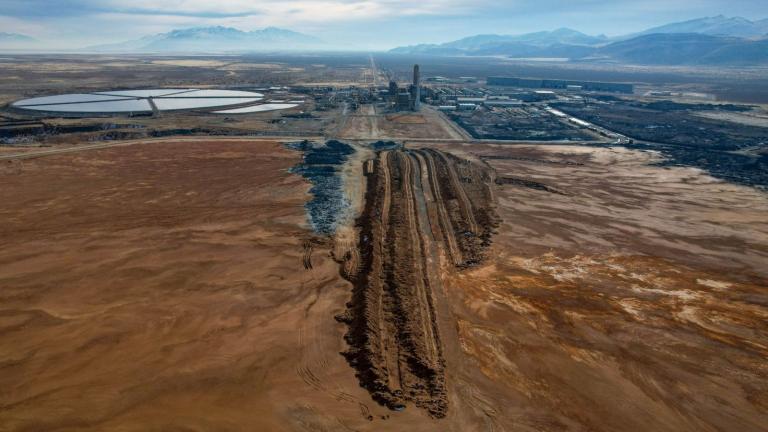Consider the rules. No, not the rules of love, but the rules of government — specifically those rules of the previous administration suspended for 60 days on the first day of the present administration under an order issued by President George W. Bush’s chief of staff, Andrew Card.

Rules of the game.
No big deal. Such an order is routine whenever a president of the other party takes over. According to the routine, the rules are reviewed, but that’s all. Actually changing or reversing a rule requires going through the same involved process which led to adopting the rule in the first place, and that can get messy.
But we may not be in routine-land any more, Toto. Take, for example, the only suspended rule many folks care about — Bill Clinton’s “roadless initiative,” banning logging, road-building and most other commercial development from some 58.5 million acres of the National Forests.
No, the Bush administration isn’t likely to try to reverse this rule via that messy process. It would love to convince Congress to reverse it, but, as they say in areas of Brooklyn far from the nearest national forest – fuggedaboudit. So 60 days from 20 Jan., the rule takes effect, right?
Maybe.

This land is roadless — for now.
Photo: U.S. Forest Service.
The roadless forest rule has been challenged in federal court by the Blue Ribbon Coalition and the states of Idaho and Alaska. The plaintiff’s case seems weak, judging by their public statements. What they mostly say is that they don’t like the policy and that their side wasn’t consulted about it, neither of which makes it illegal. The Forest Service is convinced it would win the case on the merits should it get to a judge.
But suppose the government takes a dive. The government is now run by folks who don’t like the rule. It could settle the case before it ever got to a judge by easing the rule or abandoning it altogether.
The cost would be a political firestorm that a politically shaky administration can ill afford. The roadless rule is widely (if not deeply) popular, environmental organizations are adept at screaming, and the outrage would be palpable from Capitol Hill to college campuses.
Doing It for Love
And why bother? Not for money. The projected reduction in logging from the new rule is minimal, which helps explain why the American Forest and Paper Association has not gone to court over it. Mining is not banned under the rule, and though oil and gas production would be curtailed, the areas now under lease — and that’s where most of the oil and gas is — were excluded from the roadless initiative.

The coastal plain in the Arctic Refuge. Hollingsworth, USFWS.
Photo: J. & K.
But because money is not everything, the roadless rule is still not safe. To understand why, take a look at another major Western resource policy the new administration is pushing — drilling for oil in Alaska’s Arctic National Wildlife Refuge.
Forget for a moment the essential dishonesty of the administration’s argument that the Alaskan oil is needed so Californians will have electricity. Just think for a moment about why Bush so avidly pushes the matter in defiance of public opinion and an apparent congressional majority against him.
Again, the conventional wisdom points to money, this time the profit of the oil companies that backed Bush. But by most estimates, there isn’t enough profit for the oil industry in the Arctic Refuge to render it worthwhile to make such a … well, what those same areas of Brooklyn would call such a big tzimmes about. There’s more gas and oil in other parts of Alaska and northern Canada, and the same political effort could more easily get additional pipeline capacity without enraging voters.
So what’s going on? Last month, New York Times columnist Paul Krugman speculated on why the administration seemed intent on making anti-environmentalism “a goal in itself.”
Krugman suggested that the goal was “eliminating Mr. Bush’s legitimacy gap by winning a series of striking victories. In effect, his advisers hope that by repeatedly rolling over the moderates they can make people forget that the other guy actually got more votes. The environment, in particular, becomes a target precisely because the other side wants to protect it.”
That’s part of the answer, but there’s another part that is less calculated and more visceral. The new president is surrounded by people who scorn and disdain environmentalism and its devotees. Opposing environmentalists has become part of their life’s mission (the contrary is true for some environmentalists). As the Clinton administration became more environmentally aggressive in its last years, these folks seethed, especially because they detested Clinton, too. It’s payback time. And the coin of this compensation is not redeemable at any bank. It isn’t money. It’s love, or its opposite.



